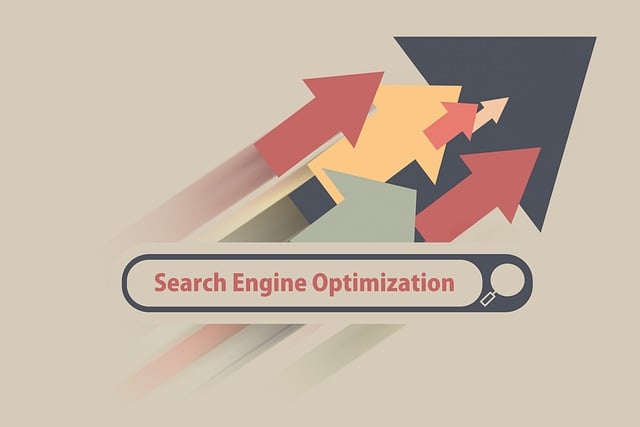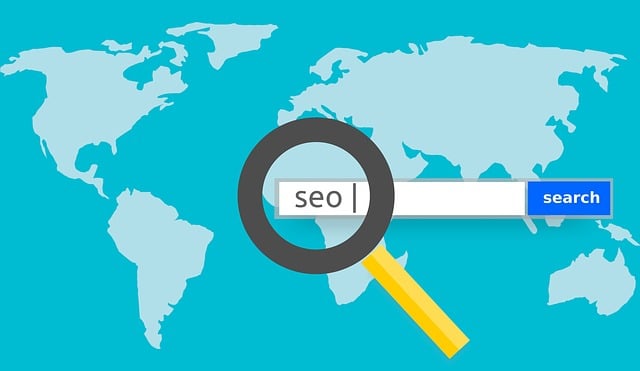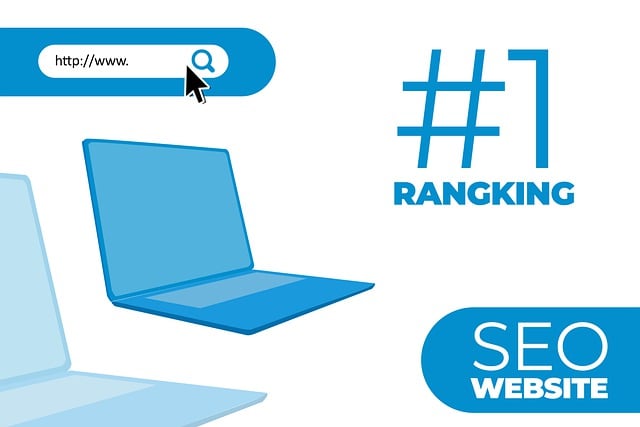Off-Page SEO is a strategic approach to boost website rankings by focusing on activities outside the site. Key components include high-quality backlinking from reputable sources, social media interaction, influencer partnerships, directory listings, and guest blogging. Guest blogging involves contributing unique, engaging content to relevant websites for backlinks and expanded reach. Choosing the right platforms, crafting quality content, optimizing for search rankings, and building strategic partnerships are essential tactics. Measuring success through key metrics like backlinks and referral traffic is crucial. Avoiding common pitfalls requires focusing on high-quality, tailored content and promoting guest posts effectively. Evolving trends in AI and machine learning will further shape Off-Page SEO strategies in the digital landscape.
Guest blogging is a powerful strategy to boost your website’s visibility and search engine rankings. In the realm of Off-Page SEO, where external factors influence your site’s performance, guest posting stands out as a proven method. This article navigates the intricacies of Off-Page SEO, exploring how guest blogging can enhance your online presence. From defining the practice and choosing the right platforms to crafting compelling content and measuring success, we’ll uncover the secrets to effective guest posting.
Understanding Off-Page SEO: The Big Picture

Off-Page SEO is a critical component that encompasses all activities and strategies outside your website to improve search engine rankings. It involves building your site’s authority and reputation in the eyes of search engines, primarily Google. One key aspect is high-quality backlinking, where relevant and reputable websites link to yours, indicating its value and trustworthiness. This signals to search engines that your content deserves a higher position in search results.
Beyond backlinking, Off-Page SEO includes various tactics such as social media engagement, influencer collaborations, online directory listings, and guest blogging. Guest blogging, for instance, involves contributing articles to other websites within your industry or niche. This strategy not only exposes your brand to new audiences but also gains backlinks from the hosting sites, thereby enhancing your site’s Off-Page SEO profile.
Guest Blogging Defined: What It Entails and Benefits

Guest blogging is a powerful strategy within the realm of Off-Page SEO, allowing individuals or businesses to contribute written content to other websites. It entails crafting informative and engaging articles for a host site relevant to your niche or industry, often in exchange for a backlink to your own website. This practice offers numerous benefits; not only does it help establish your authority by exposing your expertise to a new audience, but it also expands your online reach and boosts visibility.
By guest blogging, you can tap into a new network of potential customers or readers who may not have discovered your main site otherwise. It facilitates the exchange of valuable content, creating a mutually beneficial relationship that strengthens both brands’ online presence. This strategy is particularly effective for driving organic traffic, improving search rankings, and building high-quality backlinks—all key factors in successful Off-Page SEO.
Choosing the Right Platforms for Effective Outreach

When considering guest blogging for Off-Page SEO, selecting the right platforms is crucial. It’s essential to target blogs and websites that align with your niche and have a solid reputation in their industry. This ensures your content reaches the right audience and carries weight in search engine rankings. Look for sites with high domain authority and relevant traffic, as these will pass more link equity to your site.
Effective outreach involves building relationships with bloggers and site owners. Research potential platforms, engage with their content, and demonstrate your expertise before pitching your guest post idea. Personalized messages that highlight mutual benefits and the value your article brings are more likely to be well-received, leading to successful collaborations that boost your SEO efforts.
Crafting Compelling Content for Maximum Impact

Crafting compelling content is a cornerstone of successful guest blogging, especially when considering its impact on Off-Page SEO. To make your blog post stand out and drive search engine rankings, focus on creating high-quality, unique, and engaging content that resonates with your target audience. Incorporate relevant keywords naturally throughout the text, but remember, keyword stuffing can harm readability and authenticity. A well-written piece that offers genuine value will not only attract backlinks from reputable sites but also encourage sharing, comments, and a higher time spent on page, all of which signal to search engines that your content is valuable and trustworthy.
Ensure your content addresses common questions or presents innovative perspectives within your niche. Use subheadings, lists, and visuals to enhance readability and make your post more shareable. By crafting compelling content, you not only maximize the potential for backlinks but also establish yourself as an authority in your industry, boosting your overall Off-Page SEO efforts.
Optimizing Your Guest Posts for Better Search Rankings

Optimizing your guest posts for search rankings is a crucial aspect of Off-Page SEO. When contributing to popular, reputable blogs, ensure your content aligns with the host site’s theme and audience. This consistency signals to search engines that your post is relevant, boosting its credibility. Use keyword research to identify terms your target audience searches for, incorporating them naturally into your writing without overstuffing. Internal links within your guest post can also enhance SEO efforts; linking to other high-quality pages on the host site encourages users to explore more content and improves overall website performance in search results.
Additionally, optimize meta descriptions and titles for maximum impact. A compelling title grabs attention while a well-crafted meta description provides a concise summary, encouraging clicks from potential readers and raising your post’s visibility in search engine results pages (SERPs). Remember, quality content that offers genuine value to readers is the foundation of successful Off-Page SEO; relevant keywords and optimization techniques merely enhance its effectiveness.
Building Quality Backlinks Through Strategic Partnerships

Building quality backlinks is a cornerstone of effective Off-Page SEO, and strategic partnerships can be a powerful tool to achieve this. Collaborating with other reputable websites or influencers in your niche allows for mutually beneficial links that enhance both sites’ visibility and authority. By aligning yourself with trusted sources, you gain access to their audience and a chance to showcase your expertise. Guest blogging on these partner sites not only provides valuable backlinks but also increases your site’s exposure to new potential customers.
Strategic partnerships should be chosen carefully, focusing on sites that align with your brand values and target audience. Relevancy is key; links from related websites carry more weight in search engine algorithms. Additionally, ensure the partnership involves creating high-quality content that naturally incorporates relevant keywords and backlinks. This approach not only improves SEO but also fosters long-term relationships within your industry, leading to ongoing opportunities for link building and collaboration.
Measuring Success: Tracking SEO Metrics After Guest Posting

Measuring success is a crucial step in understanding the impact of your guest blogging efforts on your Off-Page SEO strategy. After publishing a guest post, tracking key metrics will help gauge its performance and identify areas for improvement. One essential metric to monitor is backlinks, as they signal to search engines that your content is valuable and trustworthy. Keep an eye out for any new high-quality backlinks from reputable sources, as this can significantly boost your site’s authority.
Additionally, analyzing referral traffic from the guest post can provide insights into its reach and engagement potential. High levels of referral traffic suggest that your content resonated with readers, potentially driving more organic searches and increasing brand visibility. Keep a close watch on these metrics to refine future guest blogging strategies, ensuring each post aligns with your SEO goals and contributes to sustained growth in online presence.
Common Mistakes to Avoid When Guest Blogging for SEO

When engaging in guest blogging for SEO, it’s crucial to steer clear of common pitfalls that can hamper your efforts. One significant mistake is neglecting to create high-quality content tailored to the target audience and the host website’s niche. Each blog post should offer unique value, addressing specific needs and interests of readers while naturally incorporating relevant keywords—a practice known as on-page optimization. Failure to do so may result in a poor user experience and could signal to search engines that the content is not trustworthy or useful.
Another blunder to avoid is overlooking the importance of Off-Page SEO. Building backlinks from reputable sources is vital for boosting your site’s authority and improving its search engine rankings. Ensure that guest posts are shared across social media platforms and promoted through strategic outreach to relevant influencers or bloggers within your industry. Inadequate promotion can limit the post’s reach and diminish its potential SEO benefits.
Future Trends in Off-Page SEO and Guest Blogging

As we move forward into the digital landscape, Off-Page SEO trends are evolving rapidly, with guest blogging remaining a cornerstone strategy. The future of off-page optimization will increasingly focus on quality and relevance, with search engines placing more emphasis on content that provides genuine value to users. High-quality guest posts on authoritative websites will continue to carry significant weight, but the emphasis shifts towards creating content that engages and retains readers.
Artificial intelligence (AI) and machine learning algorithms are set to play a larger role in both SEO and content creation. These technologies can analyze vast amounts of data to identify trends, optimize content for search engine rankings, and even generate personalized content experiences. Guest blogging platforms may incorporate AI features to match bloggers with relevant sites, ensuring that each post is not just relevant but also tailored to the target audience’s interests and search queries.
